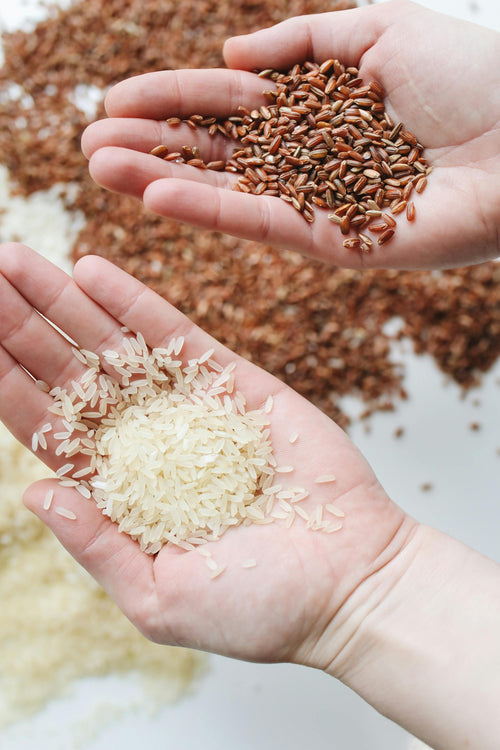While research has largely focused on the subject, many preconceived ideas have also emerged. We give you some facts and preconceived ideas to help you see things more clearly!
We only obtain the full potential of probiotics by consuming prebiotics: True!
Probiotics are live microorganisms that populate our different microbiota. Prebiotics represent their substrate, so that they can grow and perform their tasks more efficiently, this is fiber. The ideal is to consume both, for a symbiotic action! In reality, we consume a lot of it as part of a balanced diet: fruits, vegetables, plants, cereal products, seeds, oilseeds, etc. Many products from these food categories contain it. You can refer to the article “How to boost your metabolism with prebiotics?” to learn more about sources of prebiotics.
Probiotics are useless in the case of a balanced diet: False!
Diet is far from the only cause of unbalanced microbiota, and it certainly cannot completely restore a person's intestinal flora in a society like ours. Indeed, recent decades have given way to a multitude of risk factors: a sanitized environment since birth, antibiotics, stress, tobacco, alcohol, etc. We all potentially have an unbalanced microbiota, but for the most part, we do not have awareness of the fact that this is what affects our daily lives. And in any case, prevention is better than cure!
Probiotics are not subject to any regulation: False!
Like any other food supplement, probiotics are subject to European regulations. This is imposed in France by ANSES and the DGCCRF, in order to ensure consumer safety.
Foods enriched with probiotics are more effective than capsules: False!
There are, in fact, traditional products containing probiotics: yogurts, kefir, kombucha, certain cheeses and soy derivatives. But in reality, the quality of the products that can be found on our shelves varies greatly. The most important points concern the number of CFU (colony forming unit), freshness and quality of the strains. Bacteria do not have a 100% survival rate when ingested, because they must pass through the various intestinal barriers that are aggressive to them. Below 10 billion CFU, the profit is low, but this information is not always indicated, especially on food products. The probiotic content is often much lower in food products than in supplements.
The older we get, the more we need probiotics: True!
Our intestinal microbiota ages with us. With age, its composition is less stable, certain beneficial species become rare, leading to a loss of capacity in certain reactions. Pathogenic and inflammation-promoting bacteria proliferate, leading to intestinal disorders, weakened immunity, etc.
All probiotics have the same role: False!
There are many different strains, all of which have targeted action. Our intestinal microbiota contains more than 200. This is why it is recommended to favor mixtures of strains, which will have a more complete action. Dijo's Essential Probiotics cure also contains 8 different species, from the Bifidobacteria, Lactobacilli and Lactococci family.
It is strongly recommended to take your probiotics on an empty stomach, in the morning: True!
As mentioned previously, probiotics will have to travel a long way, and redouble their efforts to pass the various intestinal barriers if they want to arrive in numbers at their destination. You might as well make their task easier by taking them on an empty stomach in the morning, 20 minutes before breakfast. This way, they do not stagnate in the stomach and pass this first stage more easily.
A single dose of probiotic is enough: False!
A single dose will not have the desired effect. Probiotics are taken as a treatment, in order to really repopulate the intestinal flora. The cures are often carried out over 2 months, with each change of season, but it is totally possible, and even recommended, to make it your daily ally.




















